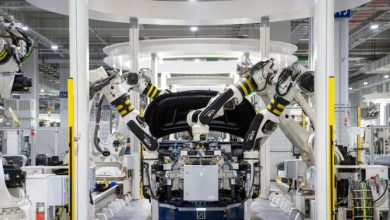6 Smart Moves You Should Be Making Right Now

Careers are being reshaped faster than many people can keep up, driven by new technologies, automation, and global events that have shown no job is completely secure.
You must future-proof your career if you want to stay ahead.
In Kentucky, rapid advances in healthcare, advanced manufacturing, and education are reshaping the workforce. Highlighting the need for continuous skills development.
While some areas are experiencing growth, others are facing new challenges. Regardless of where you live or what field you are in, taking action now can help protect your career for years to come.
Here are six smart moves you should start making today.
Embrace Lifelong Learning
What you learned at the start of your career is no longer enough to stay competitive in today’s workforce. In Kentucky, rapid changes across industries are putting greater pressure on workers to update their skills and earn recognized credentials. Employers increasingly look for candidates who demonstrate a commitment to practical, career-ready education. While independent learning tools like podcasts and webinars can support growth, structured programs carry the recognition and rigor that employers trust.
For working adults balancing career and education, flexibility becomes essential. Online colleges in Kentucky, like Northern Kentucky University, offer programs that allow you to continue advancing your education without stepping away from your career. Earning a degree or certification from one of these respected institutions builds a strong foundation for long-term success, strengthens your professional standing, and creates targeted expertise that opens doors to leadership roles and career shifts.
Complementing formal education with workshops, short courses, and industry certifications helps you stay agile and ready to meet future challenges with confidence.
Build a Resilient Professional Network
If you think networking is only for people looking for a new job, it’s time to think again. Building a strong professional network is one of the smartest things you can do to future-proof your career, even if you’re perfectly happy where you are right now.
The truth is, careers are unpredictable. Companies merge, industries change, and sometimes job roles simply disappear. Having a network means you won’t have to start from scratch if you ever need support, advice, or new opportunities. A strong network can open doors to jobs you never knew existed, introduce you to mentors, and even connect you with clients if you decide to work for yourself one day.
Start by strengthening relationships with the people you already know—colleagues, former classmates, and community members. Then, take small steps to expand your circle. Attend industry events, join professional groups on LinkedIn, and don’t be afraid to reach out to people whose work you admire. Even casual conversations can turn into valuable connections over time.
Diversify Your Skill Set
Having one strong skill used to be enough to build a solid career. Today, things are a little different. Employers are looking for people who can do more than just one thing well. That’s why it’s smart to start diversifying your skills.
Diversifying doesn’t mean you have to be an expert at everything. It means adding a few extra tools to your toolbox so you can be more flexible and valuable. For example, if you work in marketing, learning basic graphic design or data analysis can make you stand out. If you’re in healthcare, understanding new technology or patient communication tools can make you even stronger in your role.
Soft skills are just as important as technical skills. Skills like communication, teamwork, and critical thinking are in high demand across all industries. These skills help you adjust to new environments, work with different types of people, and solve problems more easily.
Develop a Digital Presence
These days, having a strong digital presence can be just as important as having a good resume. Employers, clients, and even colleagues often look people up online before making decisions. If they can’t find much about you, or if what they find is outdated, you might miss out on opportunities.
Start by making sure your LinkedIn profile is up to date. Use a clear photo, list your current job, and highlight your skills and achievements. You don’t have to post every day, but sharing articles, commenting on industry news, or even writing short posts about your experiences can show that you’re active and engaged in your field.
Depending on your career goals, you might also want to build a simple online portfolio. This could be a website that lists your projects, awards, or examples of your work. It doesn’t have to be fancy—a few clean, easy-to-read pages are enough.
Stay Adaptable and Open to Change
One of the biggest things you can do to future-proof your career is to stay adaptable. Change is happening in every industry, and being able to roll with it will set you apart from people who resist it.
Adaptability means being willing to learn new systems, take on different types of work, or even move into a different role if needed. It’s about keeping a positive attitude even when things don’t go exactly as planned.
A great way to stay adaptable is to focus on building a growth mindset. That means seeing challenges as chances to learn instead of as problems. When a new technology comes to your workplace, try to be one of the first to learn it. If your company shifts direction, be open to exploring new roles or departments.
Plan Financially for Flexibility
Most people don’t connect financial planning with career planning, but the two go hand in hand. Having some financial security gives you the freedom to make career choices that are good for you—not just ones you feel forced into.
One smart move is to build an emergency fund that covers at least three to six months of living expenses. This way, if you ever need to leave a job, switch industries, or go back to school, you’ll have a cushion to fall back on.
Another good idea is to invest in your own professional development. Set aside a little money each year for courses, conferences, certifications, or other learning experiences. These investments can make a big difference over time.
You might also think about creating small side incomes if you can. Freelance work, consulting, or even a small business on the side can give you more financial stability and open up new career paths in the future.
The future of work will keep changing, whether we’re ready for it or not. But the good news is that you don’t have to sit back and hope for the best. By taking small, smart steps today—like learning new skills, building strong networks, and staying open to change—you can build a career that’s ready for whatever comes next.
The most important thing to remember is that future-proofing your career is an ongoing process, not a one-time project. Keep learning, keep connecting, and keep moving forward. With a little effort now, you’ll be able to face the future with confidence and control.




